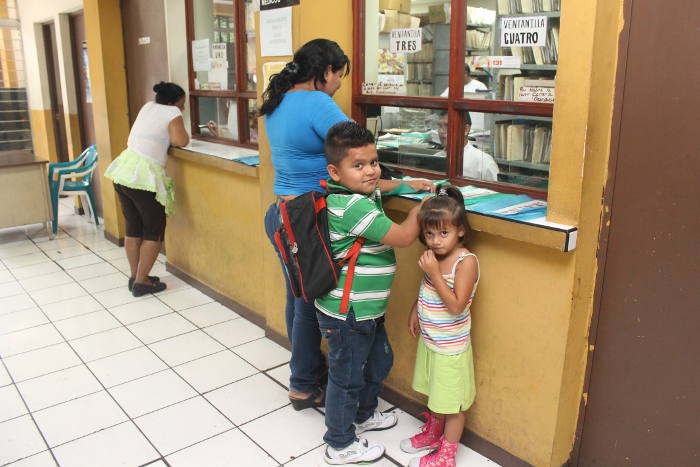-
13 October 2017
Category : Reportage
Hospital medical records: much more than a storage space
Representatives of the Ministry of Health, the Institute of Social Security and the Institute for Access to Public Information travelled to Madrid with the support of EUROsociAL+ to find out more in situ about the Spanish experience with managing hospital medical records

When Margarita went to her Social Security hospital in El Salvador for her regular type 2 diabetes check-up, her medical record had disappeared. After hours of fruitless searching, she went in to see her doctor with a temporary (empty) file so that he could prescribe the appropriate medicines. Due to the lack of medical information, the doctor told her that he could not prescribe her glimepiride, one of the key drugs for treating her diabetes, until he had some accurate analyses of her medical condition. Margarita had to wait almost a month to get the result of the new clinical analyses, without receiving proper medication in the meantime. After nearly three months, the file was finally found, surprisingly, among the records of those who had died.
Managing medical records properly is essential for improving the treatment of patients and the exercise of their rights, as well as the effective and efficient functioning of the healthcare system. However, this is a daunting task that requires confronting huge challenges, such as a lack of storage space or human and financial resources. At the same time, the patients’ personal details must be properly protected and the complex process of transferring the files from a paper format to an electronic one must be carried out in stages.
Well aware of the pressing need to tackle this issue in El Salvador, the Institute for Access to Public Information (IAIP), the Ministry of Health (MINSAL) and the Salvadoran Institute of Social Security (ISSS) have joined forces with the aim of building the foundations for a new era in the management of medical records in this Central American country’s public healthcare sector.
The EUROsociAL+ Programme, funded by the European Commission and managed by the FIIAPP, is helping El Salvador with this process. As a first step, between 25 and 28 September, representatives of the three Salvadoran institutions visited Madrid to find out about the progress made and the challenges faced by Spain in this area. For a week, they were able to exchange experiences and lessons learned with the Ministry of Health, Equality and Social Services, the Castilla-La Mancha Health Service (SESCAM), the Community of Madrid’s Hospital Clínico San Carlos, the Ministry of Education, Culture and Sports General Sub-Directorate of State Archives and the Spanish Data Protection Agency. The visit included a tour of the Hospital Clínico San Carlos archives and the Central Archives of the State Administration in Alcalá in addition to a presentation of the lessons learned from the Tunisian electronic file project headed by the FIIAPP and funded by the European Union.
This activity was the first step in promoting inter-institutional dialogue in El Salvador, advancing toward creating operating instructions and new regulations, and promoting cultural change, which is needed in order to improve the quality of healthcare in this Central American country.
Borja Díaz Rivillas, Senior Officer of Democratic Governance. EUROsociAL+
The views and opinions expressed in this blog are the sole responsibility of the person who write them.






